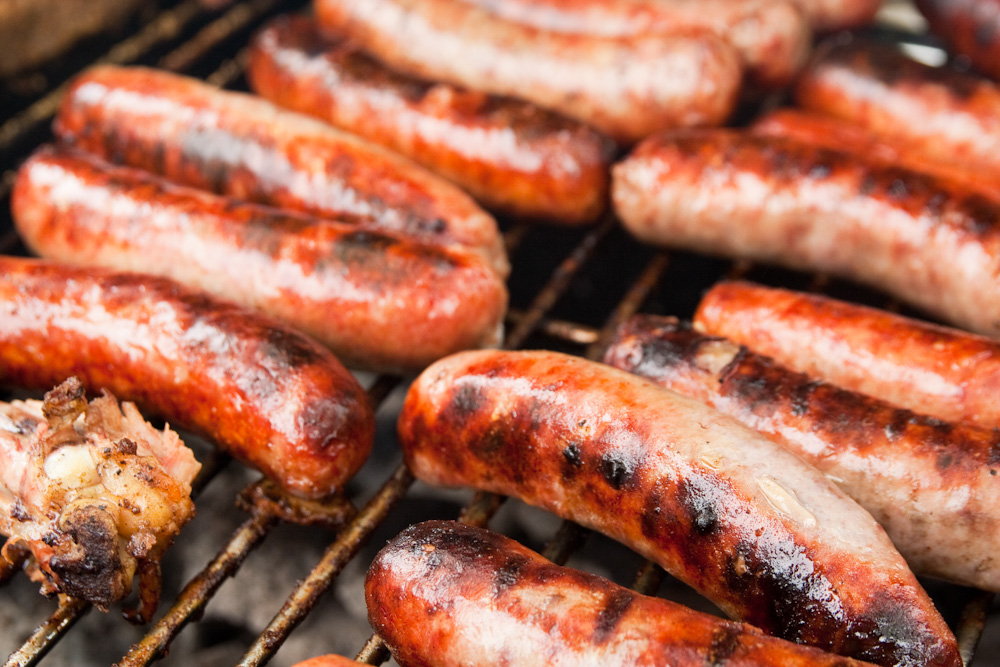Expert Reaction
These comments have been collated by the Science Media Centre to provide a variety of expert perspectives on this issue. Feel free to use these quotes in your stories. Views expressed are the personal opinions of the experts named. They do not represent the views of the SMC or any other organisation unless specifically stated.
The new WHO analysis on red and processed meat and cancer risk is consistent with research commissioned by Cancer Council Australia that was released earlier this month. The study found that 2600 bowel cancer cases each year could be attributed to excess red and processed meat consumption.
"The National Health and Medical Research Council's current dietary guidelines recommends consuming no more than 65 to 100 grams of cooked red meat, three-to-four times a week. Cancer Council recommends staying within this guideline but we don't encourage avoiding red meat altogether - lean red meat is a good source of iron, zinc, vitamin B12 and protein."
"Processed meats, however, are nutrient poor by comparison and more likely to be high in fat, salt and nitrates. This is why we recommend reducing or limiting processed meat intake.
"It's also important to put the cancer risks associated with red and processed meat into context in terms of other preventable cancer causes. While Cancer Council's recent research found that red and processed meat accounted for around 2600 cancer cases each year, 11,500 cancer cases each year are caused by tobacco, 3,900 cancer cases are attributable to obesity and overweight and 3,200 are attributable to alcohol. An overall healthy lifestyle, including diet, is important to reduce your cancer risk.
Professor Mark L Wahlqvist AO is Emeritus Professor and Head of Medicine at Monash University and Monash Medical Centre. He is also Past President of the International Union of Nutritional Sciences
As important as the IARC findings are, we must now be more prudent ,sparing and equitable in the use of meat and meat products to be consistent with the new UN Global Goals and the increasing need for food security with climate change
Dr Christina Pollard is Nutrition Policy Advisor at Curtin University and a Fellow of the World Cancer Research Fund International
The IARC assessment are a hazard analysis, answering the question 'is there evidence that substance(agent), in this case meat, is carcinogenic (capable of causing) cancer in humans?' ranking from Group 1 'carcinogenic to humans' to Group 5 'probably not carcinogenic to humans'.
Group 1 means convincing evidence that the agent causes cancer in humans. Evidence shows development of cancer in exposed humans and also strong evidence in experimental animal research.
Group 2 agents have varying evidence of carcinogenicity in humans and experimental animals.
Group 2A means the agent is probably carcinogenic to humans (limited evidence of carcinogenicity in humans (positive association, but cannot rule out confounders) and sufficient in experimental animals.)
You cannot compare agents in the same group because the risk associated with exposure is not part of the assessment.
Group 1 agents are all hazards, they are capable of causing cancer, but the risk may be different due to different levels of exposure across the population.
What do cancer findings mean for Australian population health dietary recommendations?
The risk associated with meat (red meat and processed meat) consumption in the Australian diet was reviewed for the 2013 Australian Dietary Guidelines.
The risk of cancer and other chronic disease as well as beneficial contributions of foods in the overall diet was considered (for meat protein-rich and an important source of iron, zinc).
Due to risk of colorectal cancer, Australian guidelines do not recommend processed and cured meats and recommendation to limit intake of lean meat or equivalents *to a maximum of 455 grams per week of per week (one serve of 65 grams of cooked lean red meat a day) for adults.
Mean daily intake of meat was greater than recommended for men, and the guidelines suggested eating 20% less on average.
Dr Rosemary Stanton OAM, Nutritionist, Senior Visiting Fellow, School of Medical Sciences, University of New South Wales
No one doubts that red meat is a nutritious food. Nor is there any nutritional reason to remove it from the diet. However, in view of the World Cancer Research Fund's evidence of a convincing relationship between red and processed meat and colorectal cancer, and the results of studies on red meat and cardiovascular disease, the Australian Dietary Guidelines recommended limiting fresh red meat to approximately 450g a week. This is well below the average consumption of 700g of red meat* reported recently by Australian men. (*This figure does not include poultry or fish). The extensive analysis from WHO's expert group confirms the message of the Australian guidelines - to limit consumption of red meat.
The guidelines also moved processed meats out of the basic food groups to the list of 'discretionary' foods. These foods are not essential in a healthy diet and should either be omitted or consumed only occasionally or in small quantities. Those who are overweight and those who are small and inactive have no room for discretionary foods.
Professor Bernard Stewart is a Conjoint Professor with the School of Women's & Children's Health at the University of New South Wales and a scientific advisor to Cancer Council Australia.
No-one’s proposing that we ban bacon, put warnings on hot dogs or take beef off the barbie. But this WHO review provides compelling evidence that the long-term consumption of red meat and/or processed meat increases your risk of cancer.
This report is based on the evidence contained within 1,000 previous studies looking at this topic. So it is one of the most complex assessments of the medical and scientific literature ever undertaken concerning a particular cancer risk.
The findings provide a new degree of certainty for health authorities who produce evidence-based dietary guidelines.



 Australia; NSW; VIC; WA
Australia; NSW; VIC; WA


